It isn’t every day that a bipartisan federal commission visits your college campus. But that’s just what happened at East Tennessee State University (ETSU) on Wednesday, August 27!
ETSU hosted a special meeting of National Security Commission on Emerging Biotechnology (NSCEB). The Commissioners wanted to learn more about East Tennessee’s biotechnology hub and how regional stakeholders are supporting its continued growth, including workforce education.

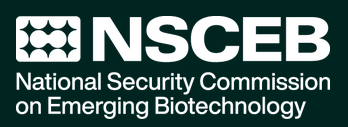
NSCEB’s Charge
The NSCEB was created by Congress in 2022. Its charge was to conduct a thorough review of how advancements in emerging biotechnology and related technologies will shape current and future national defense activities. In April 2025, after several years of information gathering and analysis, the Commission issued the report, “Charting the Future of Biotechnology: An action plan for American Security and Prosperity.” The report contains specific recommendations to accelerate U.S. biotechnology leadership, focusing on innovation, security, and workforce development.
In workforce development (Chapter 5), their call to action is clear: to maintain an edge in this rapidly evolving arena, the nation must dramatically expand its talent pipeline and infuse “bioliteracy” into education at all levels. The report calls for investments in microcredentialing, teacher training, and robust partnerships between academia, industry, and government to prepare students for a range of jobs and to inspire them as future biotech innovators.
Having issued their report, the Commission is now engaged in a “roadshow”, which they describe as, “Hitting the road to highlight biotechnology across America, including the companies, academic institutions, industry alliances, workforce development programs, and policy initiatives that are driving the future for this rapidly growing industry. Commissioners intend to continue learning about the work being done across this vibrant ecosystem while engaging on the key findings and recommendations from the Commission’s recent report to Congress.”
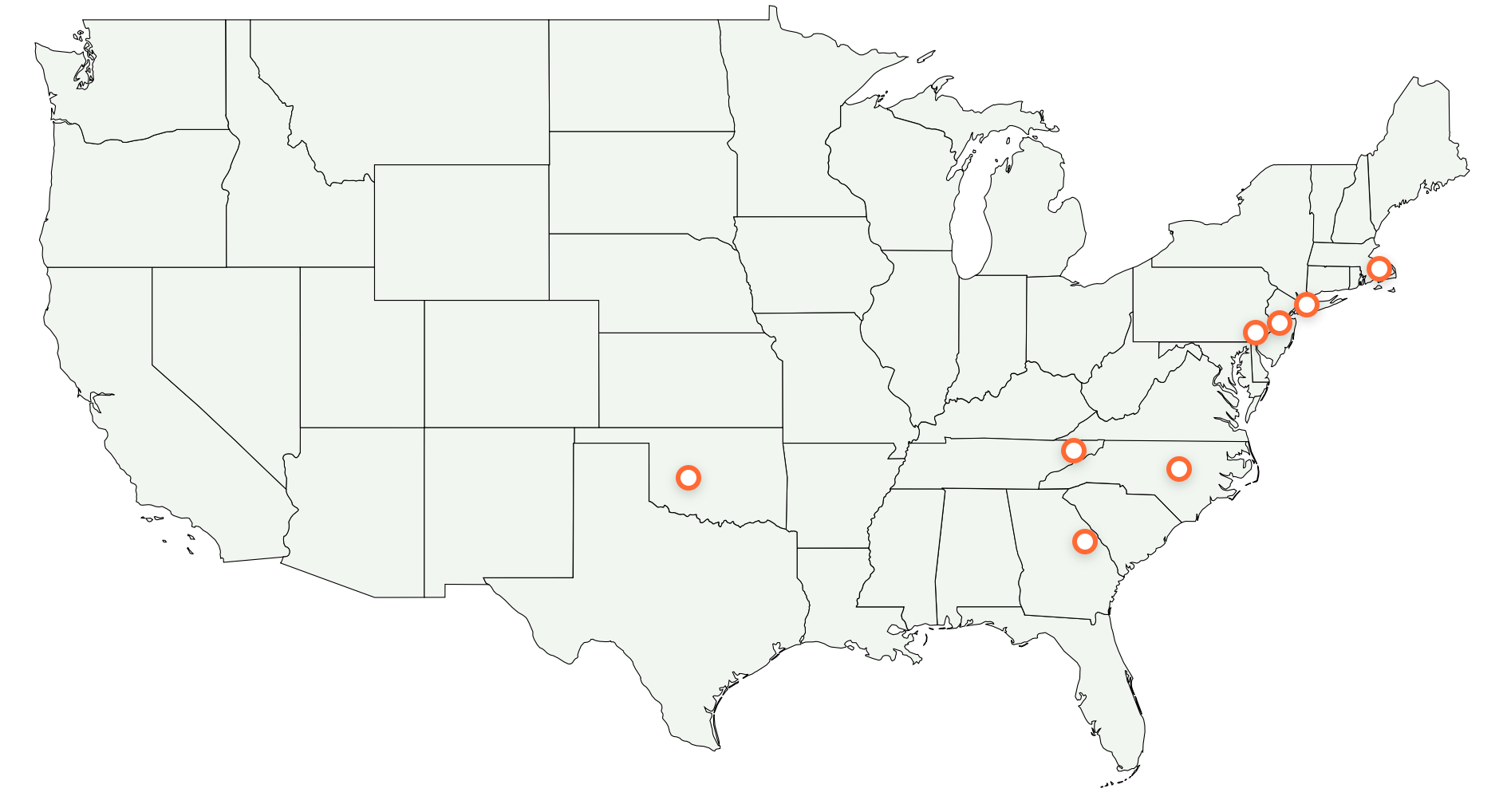
East Tennessee was one of eight regions selected by the NSCEB for a special meeting.
Meeting Highlights
The meeting included four sessions with numerous stakeholders from the East Tennessee biotech hub.
Session 1: The day began with a regional overview that traced the history of innovation and “get it done” attitude that has defined the Appalachian Highlands. The speakers highlighted the region’s significant “come together” efforts throughout its history, from the Over Mountain Men in the Revolutionary War who fought when the King ordered General Ferguson to burn their farms, to the preservation of fermentation skills throughout the era of prohibition, to the building of the Oak Ridge National Lab during the Manhattan project. Building on the “DNA” of local people who work to solve big problems, the panel was moderated by David Golden, CEO of the ETSU Research Corporation, the speakers were
- Dr. Brian Noland, President at ETSU
- Dr. Linda Latimer, immediate past Chair, ETSU Board of Trustees)
- Scott Niswonger, CEO Niswonger Foundation and Philanthropist
- Alan Levine, Chair and CEO Ballad Health, Vice-Chair Florida Board of Governors
- Scott Andrew, CEO Tennessee Hills
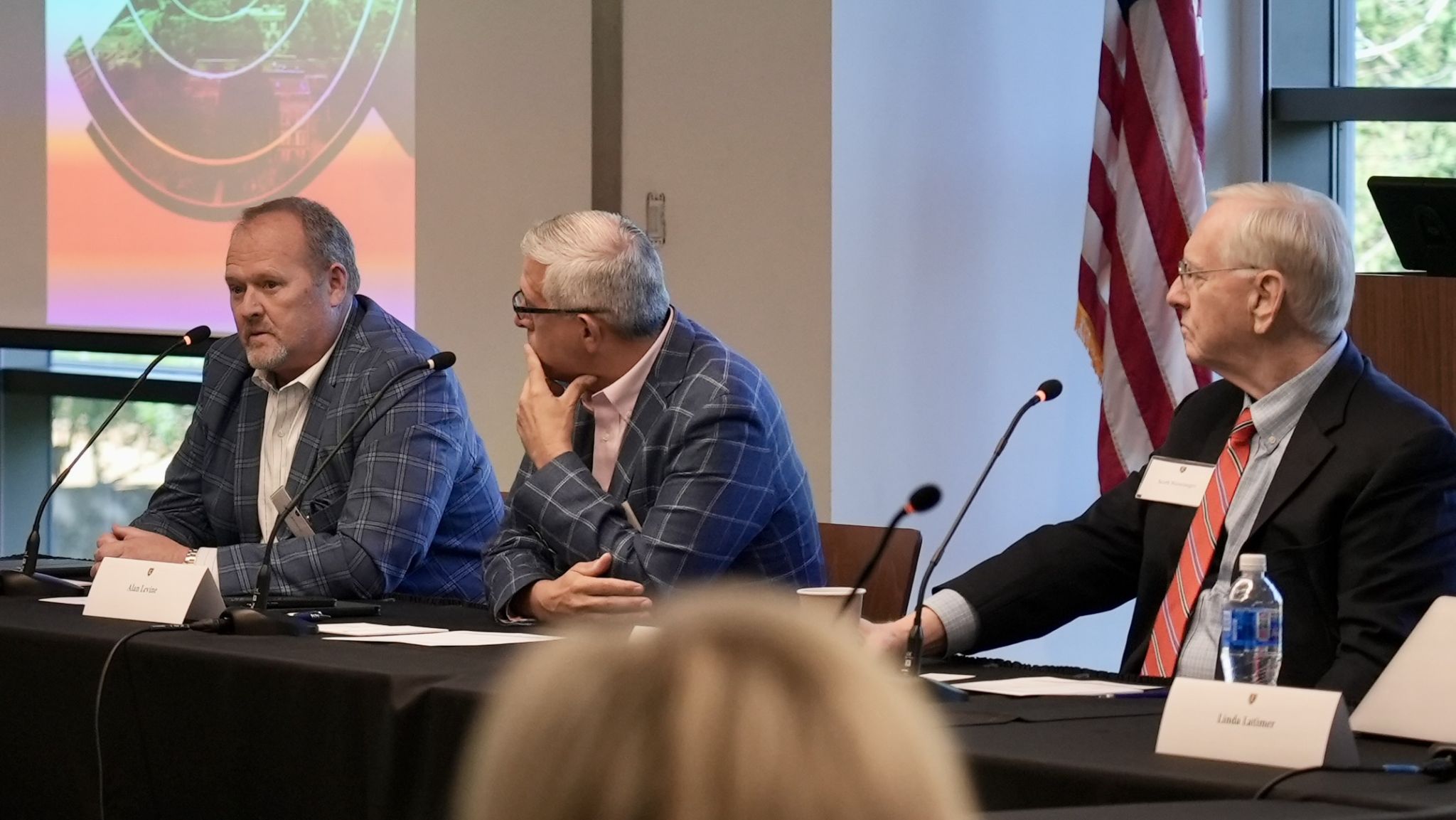
Session 2: The next session was moderated by BioBuilder’s Founder and Executive Director, Dr. Natalie Kuldell. Entitled “The Longest and Most Critical Supply Chain—Cracking the Code and Growing the Future Bio-Tech Workforce Now,” the session emphasized the region’s built-for-purpose pipeline of biotech talent. Reflecting on the fact U.S. high school students graduate with ~15,000 hours of school time, they can and should be expected to glean more than an awareness and exploration of science careers. And in East TN they are! The programs, partners, and pathways that have resulted were presented by
- Dr. Vicki Kirk, STEM.LD Program Coordinator, Niswonger Foundation
- Dr. Kimberly McCorkle, Provost ETSU
- Dr. David Mansouri, CEO TN SCORE
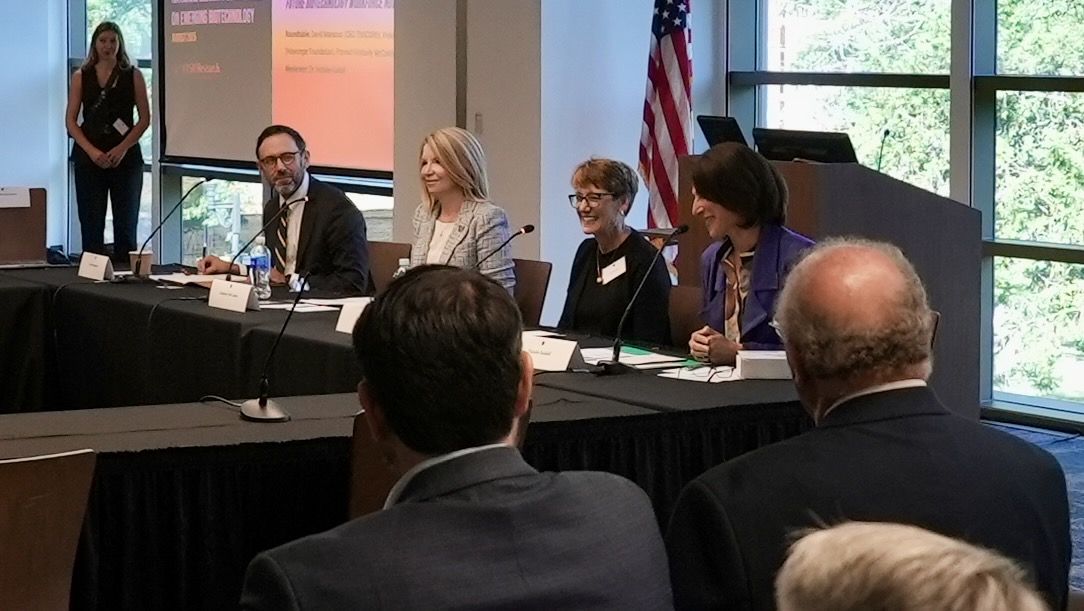
Session 3: Just before lunch, David Golden moderated an industry-focused panel that addressed both the pinch points and the potential for biotechnology in the region. From large, multinational corporations like Thermo Fisher to manufacturing plants for materials as diverse as antibiotics and solar panels, the speakers emphasized the opportunity and the urgency to reshore vital capabilities. The case for doing this in East TN was made by
- Richard Rast, CEO, Highland Materials
- Patrick Cashman, CEO, US Antibiotics
- Sara Bastian, Senior Director, Thermo Fisher Scientific
- Mike Vaughn, President, Adora Life Science
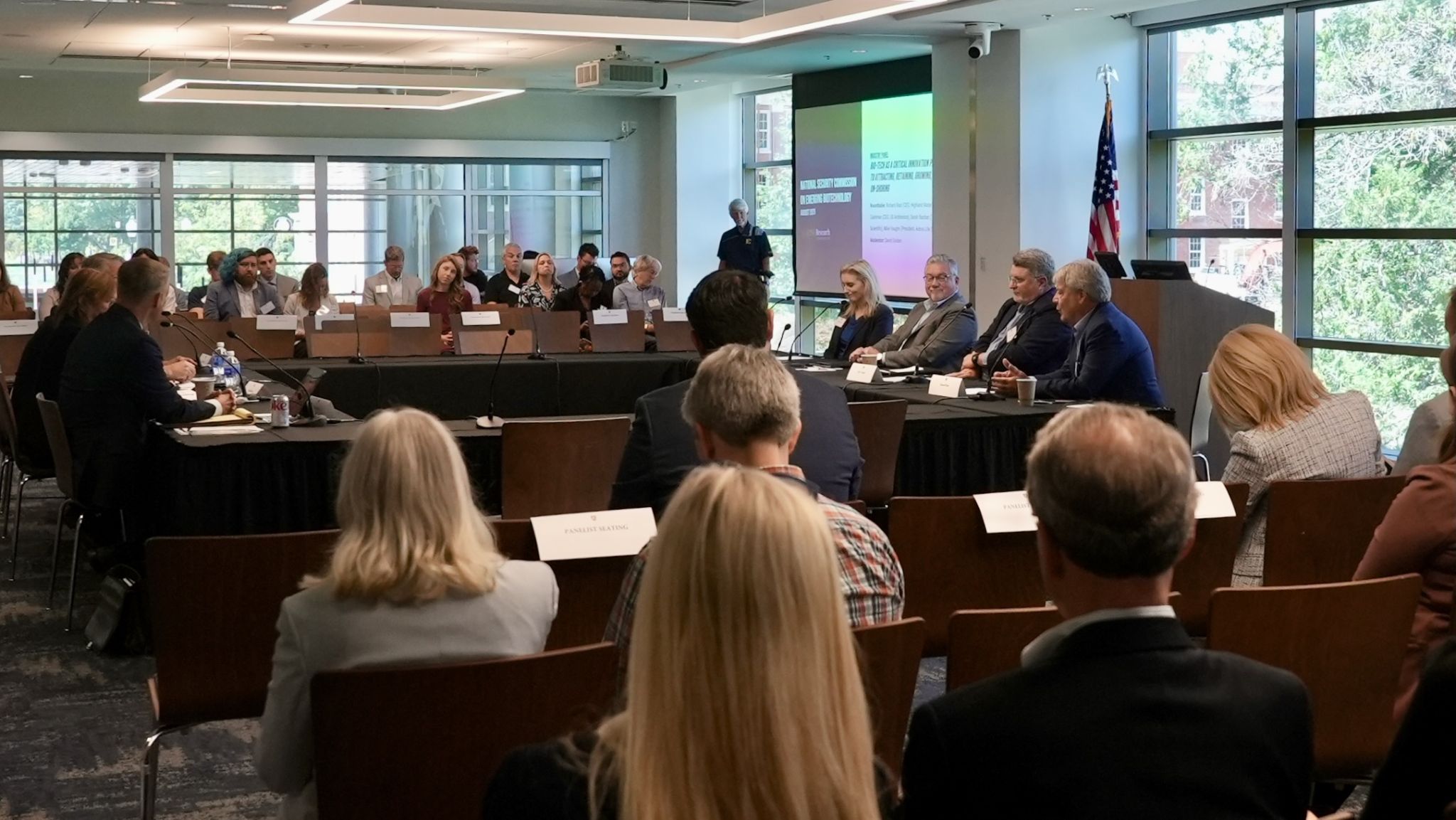
The East Tennessee stakeholders demonstrated how their approach to biotech is deliberate, logical, and repeatable. Given that the Commission’s report emphasizes the need for private industry, academia, and government to work together, East Tennessee is living proof of what that looks like.
Each session was intentionally interactive with time for questions and discussions among those present. It was a morning of learning, discussion, and encouragement for all present. After lunch and a closed door Session 4 with defense and security related partners, the tour portion of the day began.
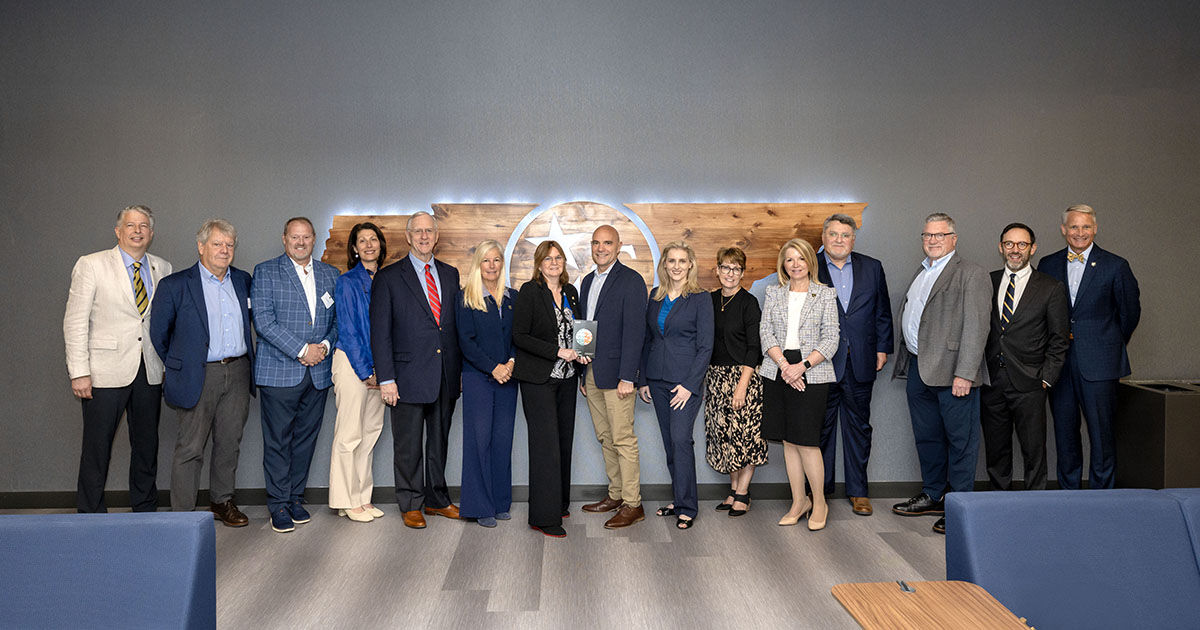
BioBuilderClub Students Shine!
To round out a spectacular day, the meeting attendees got to see BioBuilder education in action! BioBuilder’s new Learning Lab@Valleybrook is part of ETSU’s innovation and research campus. Area BioBuilderClub students taught the guests a BioBuilder lab and answered their questions to help them understand what they were doing and why it is important.
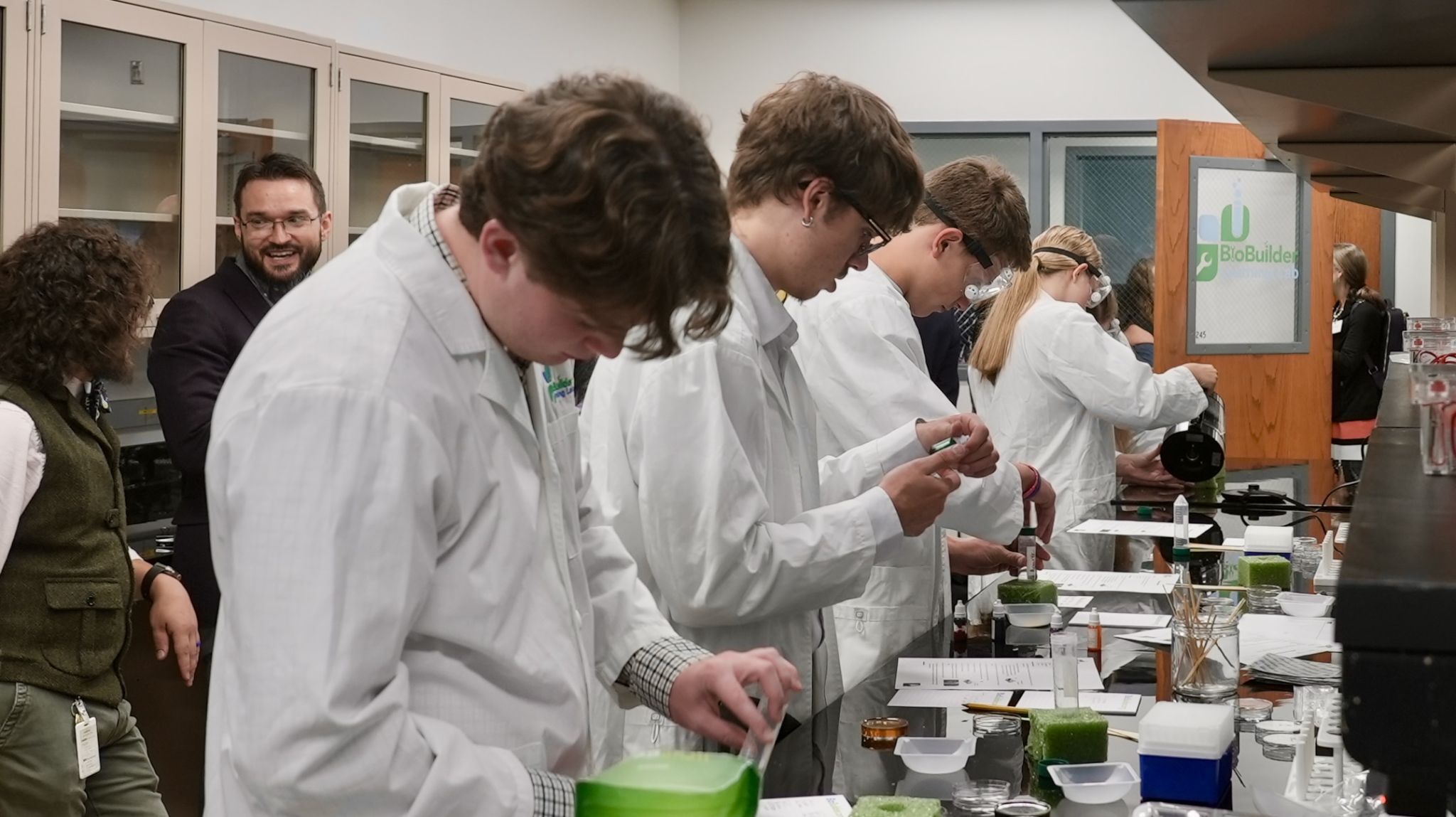
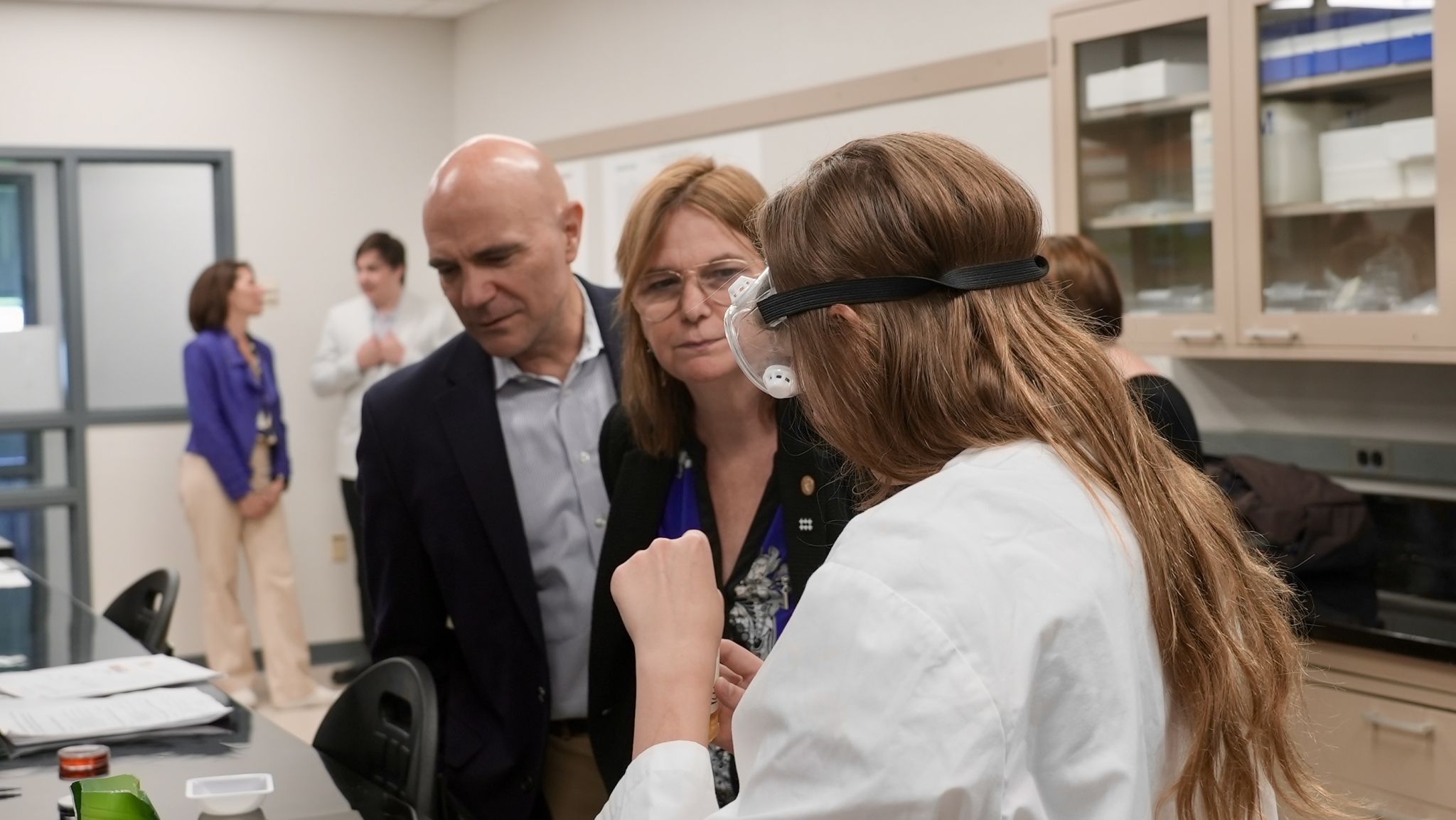
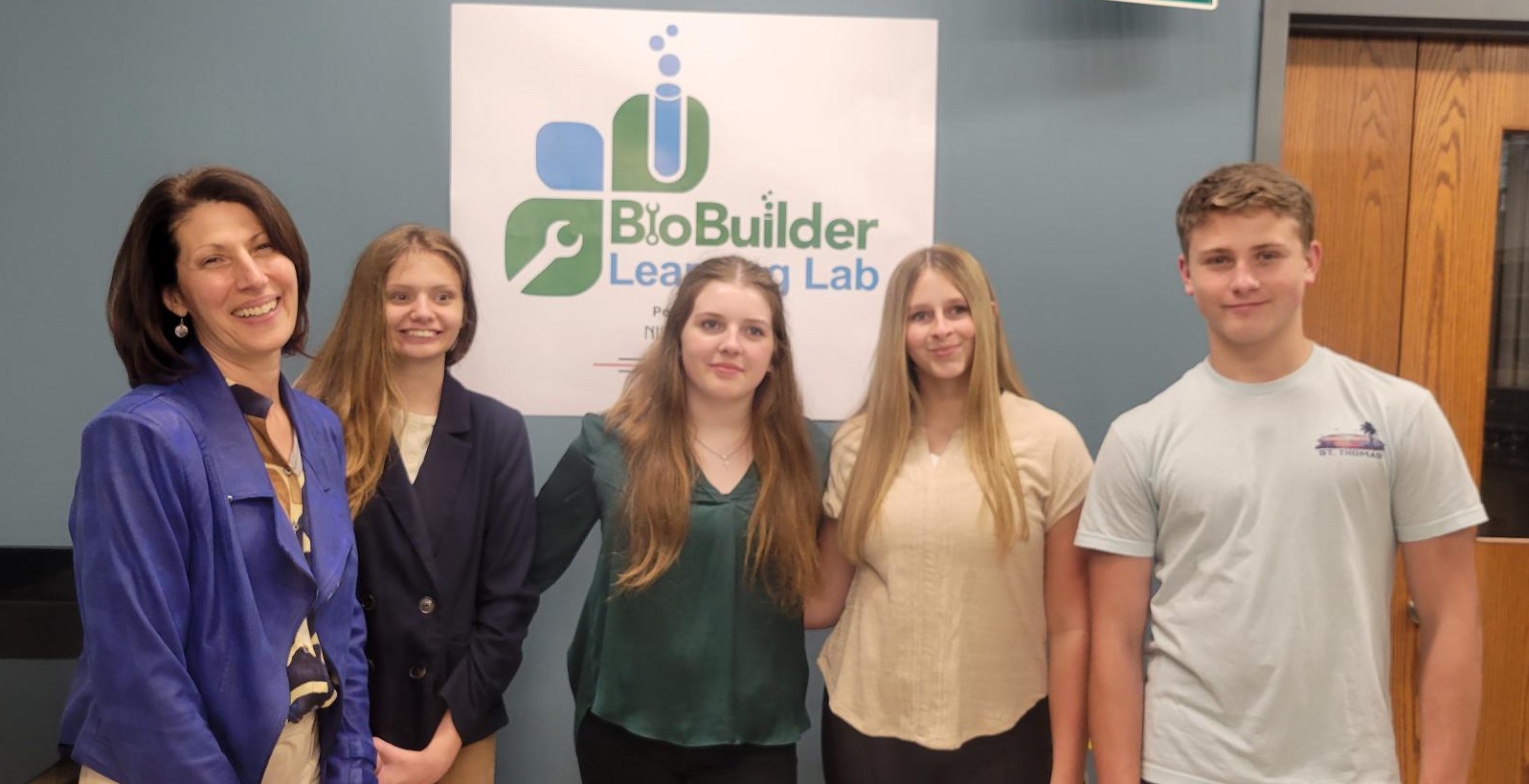
In addition, two students from nearby Dobyns-Bennett High School presented their biotech project posters to the attendees. They also had time to discuss their research with the guests and share what they learned in BioBuilderClub.
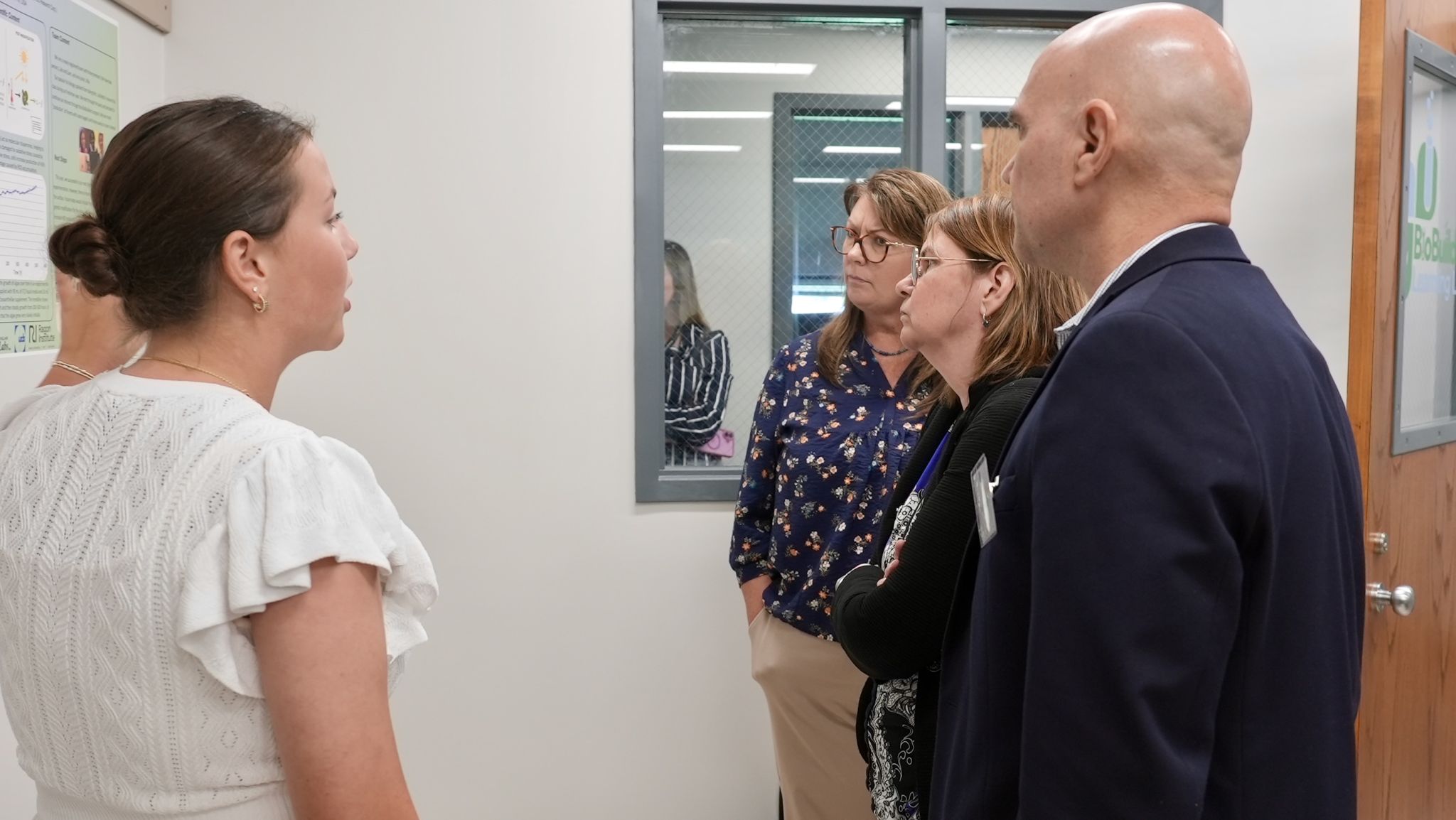
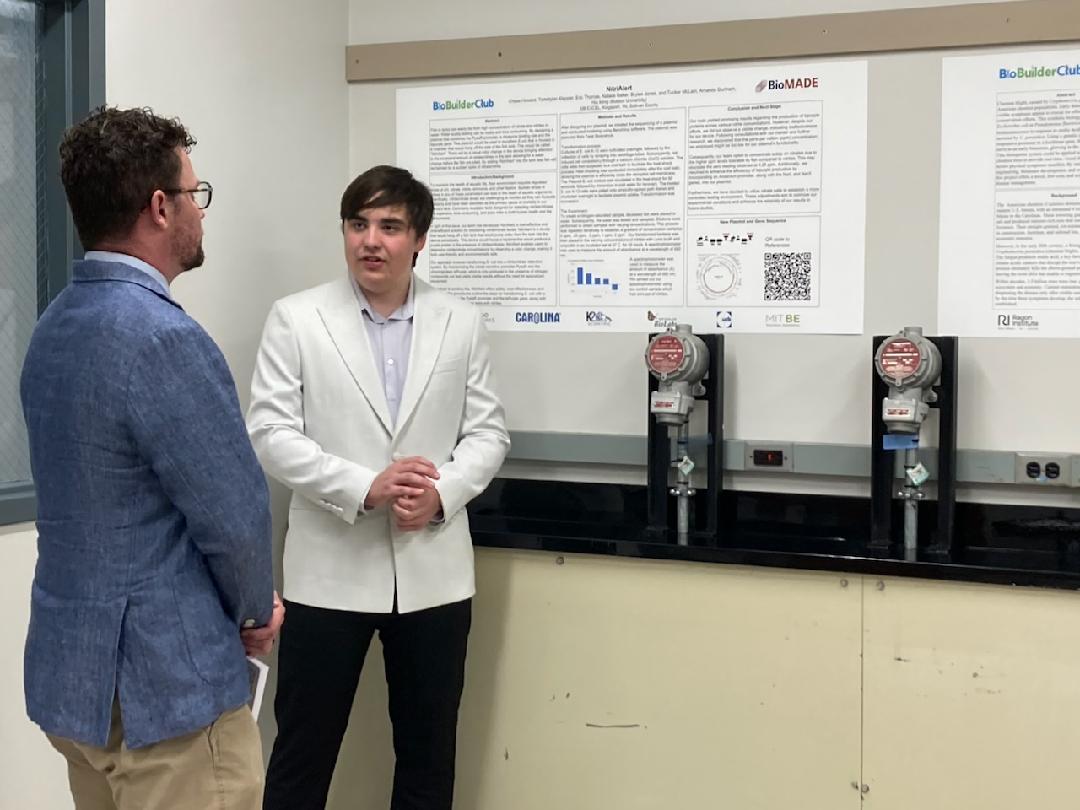
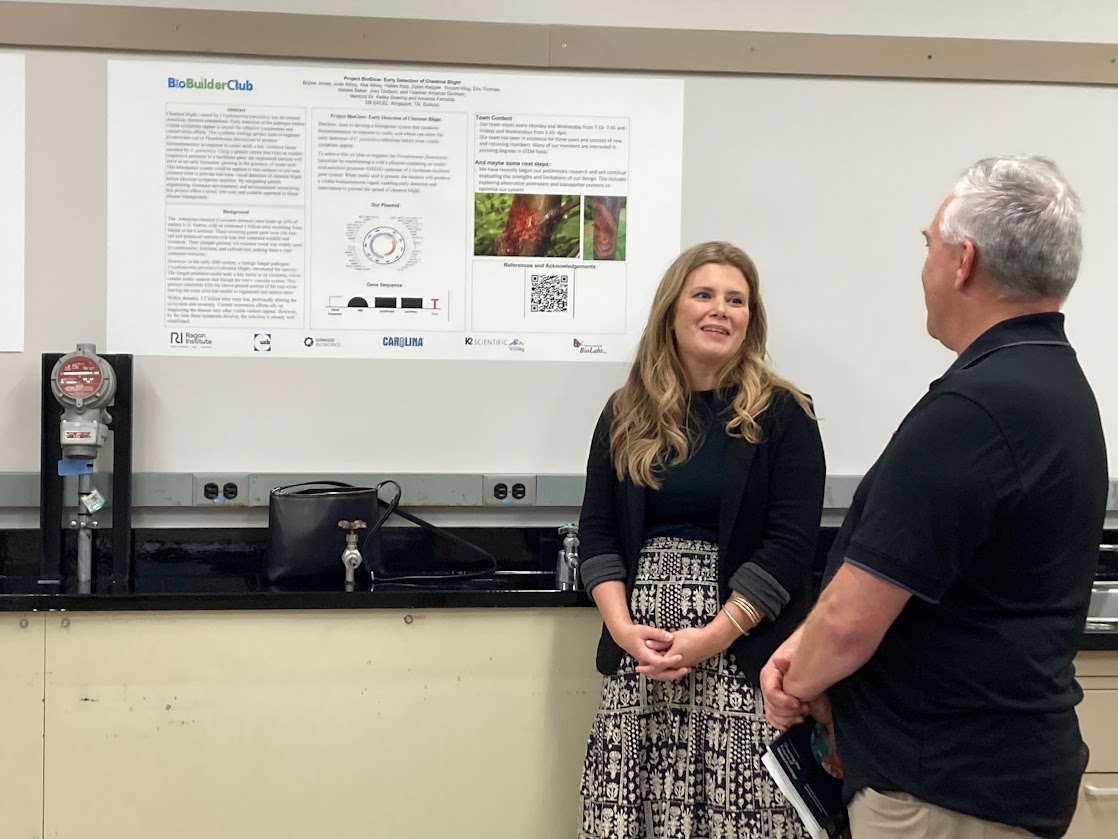
Impossible to Ignore: East Tennessee is Leading the Way
The East Tennessee region embodies the NSCEB’s vision for creating biotech hubs across the nation. The diverse collaboration that has developed in this region includes ETSU, BioBuilder, the Niswonger Foundation, Eastman Chemical, and many other industries and organizations. Working together, they are an example of how a thriving biotechnology hub can be ignited, even in rural and other underserved areas, such as their own Appalachian Highlands.
The East Tennessee collaboration has built educational pathways, training programs, and innovative curricula that can serve as a blueprint for other communities. Notably, programs like ETSU’s new synthetic biology minor, BioEngineering major, and new research infrastructure have attracted both investment and student interest, propelling the region onto the national stage as a model for bio-driven regional transformation.
BioBuilder’s Transformative Role
At the forefront of East Tennessee’s biotech momentum is BioBuilder with classroom-ready, problem-based curricula and hands-on laboratory experiences. BioBuilder’s programs have been implemented in 10 local schools, directly involving almost 900 students in hands-on, real-world biology projects. Through the BioBuilder and BioTechBuilder curricula, and extra-curricular programs such as BioBuilderClub, the High School Apprenticeship Challenge, and others, high school students gain early exposure to bioscience, synthetic biology, industry-level lab skills, and even internship opportunities.
And we can’t forget our wonderful teachers! BioBuilder provides them with hands-on professional development so they can bring cutting-edge science to their classrooms.
Moving Forward Together
Whew! August 27 was a whirlwind day for the NSCEB Commissioners, BioBuilder, ETSU, and other meeting attendees. But the “aha” moments and deep understanding gained about East Tennessee’s biotech successes made the time so worthwhile.
As NSCEB recognized in its visit to ETSU, the biotechnology revolution is not a distant prospect—it’s happening now, in classrooms, labs, and communities across the nation. Anyone who believes in preparing students for the future, building economic resilience, or tackling global challenges should look to what’s happening in East Tennessee as proof that real, lasting change begins with education, vision, and partnership.
Are you ready to start this revolution in your region?
If you haven’t done it yet, please find a way to join our growing community of BioBuilders. You can visit our new Learning Lab, participate in our new BioTechBuilder training, or find even more news and opportunities on our new website!
BioTechBuilder Teacher Professional Development Wins Big!
This week the winners of the Educators Pick Best of STEM® 2025 Awards were announced, and BioTechBuilder teacher professional development took the top spot in two categories:
- Best Professional Development for Life Sciences
- Bridging the Gap: Professional Development for products and services for educators that help accelerate student learning
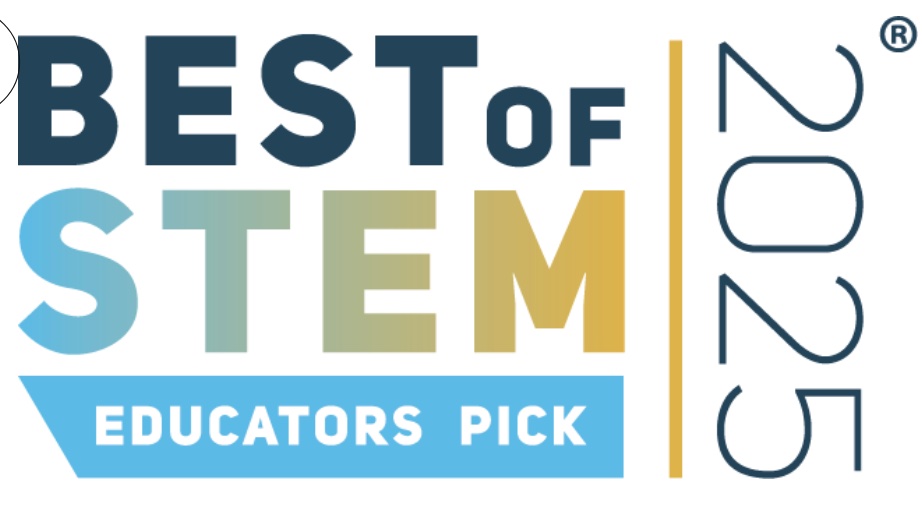
Educators Pick Best of STEM is the only STEM Ed awards program judged by STEM teachers. The program acknowledges organizations who provide comprehensive, integrated solutions in specific STEM fields.
Each year, entries receive a two-part evaluation process, first, by a panel of seven expert educators who select the finalists in each category. Then, more than 260,000 STEM educators are given the opportunity to evaluate the finalists via a survey. This year, entries were accepted in 42 categories!

Just last month, BioBuilder traveled to northeast Tennessee to conduct profession development for teachers from seven area high schools. Learn more about it in our July 2025 blog post.
BioBuilder is honored to be recognized for the hands-on training we provide to STEM educators! Because when teachers learn skills, their students learn them too.

